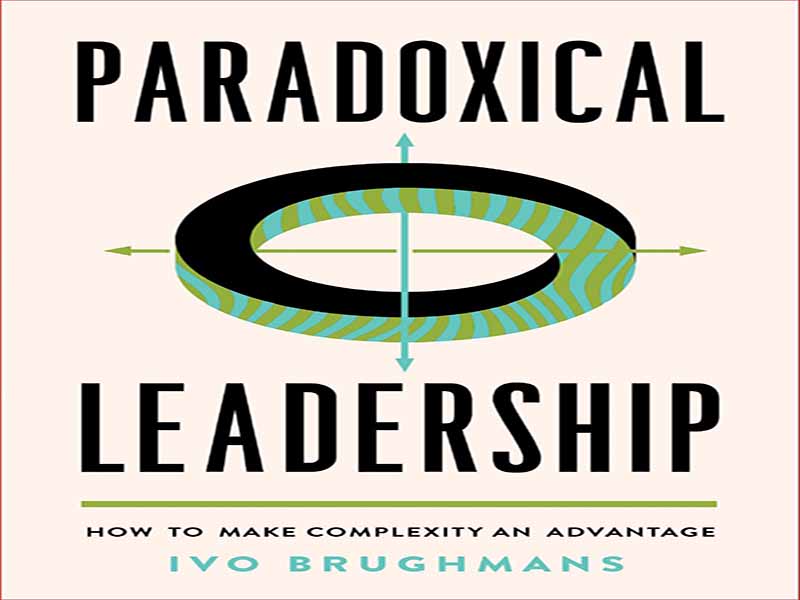- عنوان مجله: Paradoxical Leadership – HOW TO MAKE COMPLEXITY AN ADVANTAGE
- نویسنده: IVO BRUGHMANS
- حوزه: هدایت و رهبری
- سال انتشار: 2023
- تعداد صفحه: 328
- زبان اصلی: انگلیسی
- نوع فایل: pdf
- حجم فایل: 6.50 مگابایت
در حالی که مشغول انجام کارهای پایانی بر روی اولین ویرایش این کتاب در سال 2016 بودم، نمونه کامل یک پارادوکس را در اخبار دیدم: بازگشت باشکوه صفحات وینیل. درست زمانی که میتوانستیم تمام موسیقیهایی را که میخواهیم از طریق ابزارهای مجازی دریافت کنیم، و دیگر محدودیتهای مادی را محدود نمیکردیم، الپیهای وینیل دوباره بسیار مد شدند. فروشگاههای ضبط به سختی میتوانستند تقاضا را برطرف کنند. و این فقط شنوندگان مسنتر نبودند که از سر دلتنگی به دنبال آلبومهای الپی میگشتند، بلکه بیشتر جوانان مشتاق بودند، که بسیاری از آنها تا به حال حتی یک دستگاه ضبط را ندیده بودند. آنها اکنون به دنبال چیزهای جالب در فروشگاههای قدیمی بودند، اما همچنین در طیف رو به رشد وینیلهای جدید عرضه شده بودند. داشتن چیزی عالی و ملموس در دست، رنگ، رایحه و آثار هنری شگفت انگیز روی جلد، آیین آهسته و دقیق قرار دادن LP روی دستگاه پخش، صدایی معتبر با صدای تروق نرم، صدای خش خش آرام و آشنا. درك این با استفاده از منطق ساده دشوار است. هیچ توضیح منطقی برای این وجود ندارد. ضبطها به فضای ذخیرهسازی نیاز دارند، به خط و خش حساس هستند و اگر میخواهیم به گوش دادن به B-side ادامه دهیم، باید بلند شویم و آنها را بچرخانیم. بهجای انتخاب ساده موسیقی دیجیتالی که میتوانیم در هر زمان و هر مکان فقط با یک ضربه آن را دریافت کنیم، ناگهان زندگیمان را دوباره راحتتر میکنیم. با این حال، از منظر متناقض، این یک منطق محض است. هر حرکت در یک جهت یک حرکت متقابل در جهت مخالف ایجاد می کند. هر چه بیشتر به دنیای مجازی روی آوریم، تمایل ما برای نگه داشتن چیزی ملموس در دستانمان قوی تر می شود. هر چه سریعتر زندگی کنیم، بیشتر میخواهیم سرعت خود را کاهش دهیم و مراقب باشیم. هر چه خرید همه چیز آماده آسان تر باشد، بیشتر می خواهیم خودمان چیزهایی را بسازیم. وقتی فراوانی حاکم می شود، محدودیت ها به گوش می رسد. من این کتاب را نوشتم زیرا پارادایم غالب یا/یا تفکر به شدت ناکافی است. ما نمیتوانیم مشکلات امروز در تجارت و جامعه را حل کنیم، اگر به آنها بهعنوان گزینههای ساده و واضح نگاه کنیم: یا کنترل میکنیم یا توانمند میسازیم. یا جهان وطنی هستیم یا هویت خود را پرورش می دهیم. یا همدلی می کنیم یا سخت گیر. یا بر مسئولیت شخصی تمرکز می کنیم یا بر همبستگی گروهی. یا بر اساس دیدگاه خودمان نوآوری می کنیم یا بر اساس تقاضای مشتری. یا به تدریج تغییر می کنیم یا یک طرح جامع ارائه می کنیم. ما همیشه به هر دو روی سکه نیاز داریم. اگر به انتخاب های سفت و سخت پایبند باشیم، نه تنها فرصت ها و پتانسیل های خود را محدود می کنیم، بلکه یک عدم تعادل ساختاری در سازمان ها و در کل جامعه ایجاد می کنیم. سیستم هایی که به طور مزمن از تعادل خارج می شوند دیر یا زود خود را اصلاح می کنند، معمولاً به روشی کاملاً بی رحمانه و مخل. چالش در یادگیری آگاهانه نحوه تعادل و اتصال قطب های مخالف، استفاده کامل از تنش ها و جنبه های مکمل نیروهای متضاد به جای انتخاب یک روی سکه یا صرفاً رضایت به مصالحه خاکستری نهفته است.
As I was putting the finishing touches on the first edition of this book in 2016, I saw the perfect example of a paradox on the news: the glorious comeback of vinyl records. Just when we could get all the music we want through virtual means, and we were no longer restricted by material limitations, vinyl LPs became extremely fashionable again. Record stores could hardly handle the demand. And it wasn’t just older listeners looking for LPs out of nostalgia but mostly enthusiastic young people, many of whom had never even seen a record player before. They were now on the lookout for cool stuff in vintage stores, but also in the rapidly growing range of brand-new vinyl releases. Having something awesome and tangible in one’s hands, the color, the scent, and the amazing artwork on the cover, the slow and careful ritual of placing the LP on the record player, the authentic soundscape with its soft crackle, soothing hiss, and familiar pops … This is difficult to grasp using plain logic; there is no rational explanation for this. Records need storage space, they are sensitive to scratches, and we need to get up and turn them around if we want to continue listening to the B-side. Instead of simply opting for digital music which we can get anytime and anywhere with just one tap, we’re suddenly making our lives less convenient again. From a paradoxical perspective, however, this is pure logic. Every movement in one direction creates a countermovement in the opposite direction. The more we turn toward the virtual world, the stronger our desire to hold something tangible in our hands. The faster we live, the more we want to slow down and be mindful. The easier it is to buy everything ready-made, the more we want to craft things ourselves. When abundance reigns, limitation beckons. I wrote this book because the dominant paradigm of either/or thinking is grossly inadequate. We cannot solve today’s problems in business and society if we continue to look at them as simple and clear-cut either/or choices: either we control or we empower; either we are cosmopolitans or we foster our own identity; either we empathize or we are strict; either we focus on personal responsibility or on group solidarity; either we innovate according to our own vision or based on client demand; either we change incrementally or we come up with a master plan. We always need both sides of the coin. If we stick to rigid either/or choices, we will not only limit our own opportunities and potential but also create a structural imbalance in organizations and in society as a whole. Systems that are chronically out of balance will sooner or later correct themselves, usually in a quite brutal and disruptive way. The challenge lies in consciously learning how to balance and connect opposing poles, making full use of the tensions and complementary aspects of opposing forces instead of choosing one side of the coin or merely being satisfied with a gray compromise.
این کتاب را میتوانید از لینک زیر بصورت رایگان دانلود کنید:
Download: Paradoxical Leadership



































نظرات کاربران